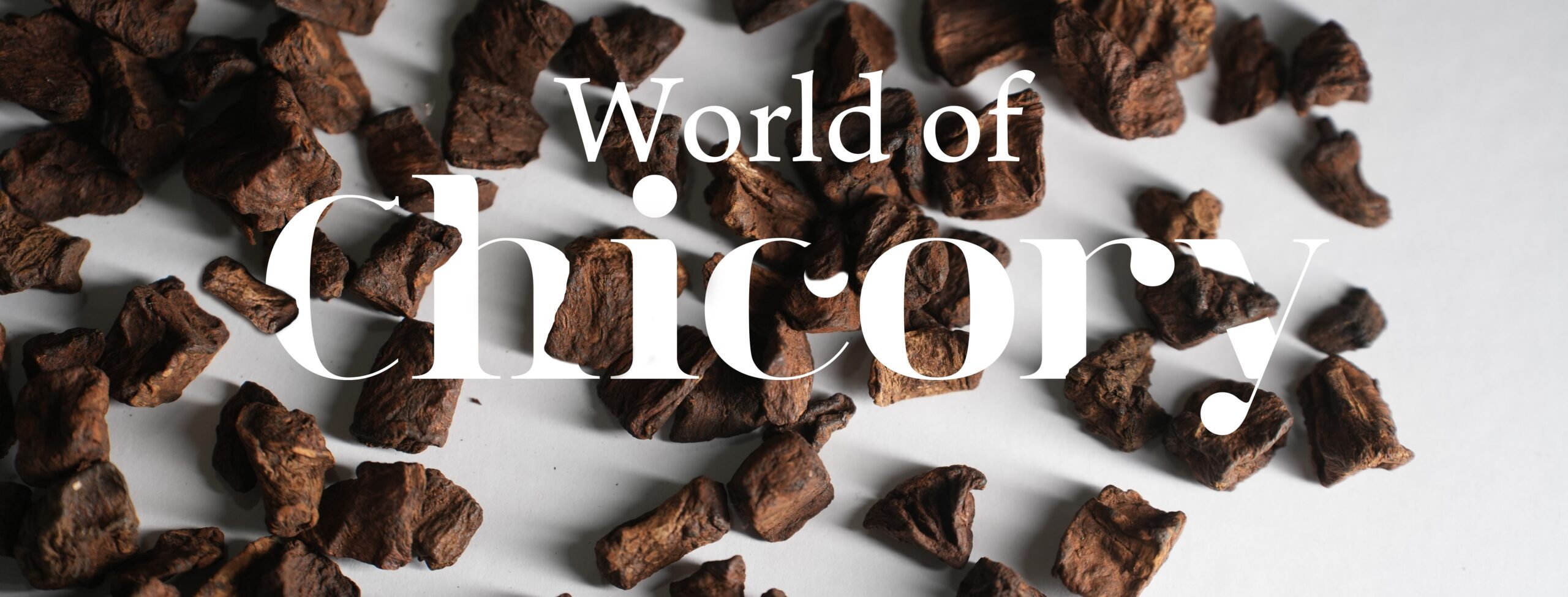Origin
The chicory plant (Cichorium intybus) is native to Europe, and its cultivation and use date back thousands of years. It is believed to have originated in the Mediterranean region and was later introduced to other parts of the world. Chicory is a hardy and adaptable plant that has become naturalized in various regions, making it a common sight in many parts of North America, Asia, and beyond. In addition to its use as a cultivated plant for its leaves, roots, and flowers, chicory is also found growing wild in some areas. Its various parts, including the leaves, roots, and flowers, have been used for culinary and medicinal purposes in different cultures throughout history. Today, it remains a popular plant for its culinary uses, particularly in salads and as a coffee substitute.
Uses of Chicory
Chicory Coffee
Roasted chicory root is often used to make a coffee-like beverage. To prepare chicory coffee, the roasted and ground chicory root is brewed in a manner similar to traditional coffee. It offers a slightly bitter and earthy flavor, somewhat reminiscent of coffee, but without the caffeine.
Caffeine Reduction
Some people mix roasted chicory with regular coffee grounds to reduce the caffeine content of their coffee. This can be a good option for those looking to enjoy the taste of coffee without the stimulating effects of caffeine.
Coffee Enhancer
Roasted chicory can be added to regular coffee to enhance the flavor and aroma. It complements the taste of coffee by adding a subtle bitterness and richness to the brew.
Ingredient in Recipes
Roasted chicory can be used as an ingredient in various recipes, such as in baked goods, stews, and sauces, to add a unique and slightly bitter flavor. It can also be used in herbal teas or combined with other herbs and spices.
Medicinal Uses
In some traditional medicine practices, chicory is believed to have potential health benefits, such as supporting digestion and liver health. Roasted chicory is sometimes used as an herbal remedy in these contexts.
Flavoring Agent
Roasted chicory can be used as a natural flavoring agent in food and beverages, including non-alcoholic and alcoholic drinks. It can add a rich and slightly bitter undertone to various culinary creations.
Benefits of Chicory
Dietary Fiber
Chicory root is a good source of inulin, a type of soluble dietary fiber. Inulin can support digestive health by promoting the growth of beneficial gut bacteria, aiding regular bowel movements, and enhancing nutrient absorption.
Coffee Substitute
Roasted chicory root is often used as a coffee substitute or additive. It provides a coffee-like flavor without the caffeine, making it a popular choice for those looking to reduce their caffeine intake
Liver Health
Some studies suggest that compounds in chicory may have a protective effect on the liver. Chicory has been used in traditional medicine for liver detoxification and support
Weight Management
The fiber in chicory can promote a feeling of fullness, potentially helping with weight management by reducing overall calorie intake
Anti-Inflammatory Properties
Chicory contains compounds like polyphenols that have anti-inflammatory properties. These compounds may help reduce inflammation in the body
Antioxidant Effects
Chicory is a source of antioxidants, which can help protect cells from oxidative stress and may have various health benefits
Blood Sugar Regulation
Some research suggests that chicory inulin may have a positive impact on blood sugar levels, which can be particularly important for individuals with diabetes or those at risk of developing it
Bone Health
Chicory is a good source of inulin, which may support calcium absorption and, in turn, bone health
Rich in Vitamins and Minerals
Chicory leaves are a good source of vitamins and minerals, including vitamin A, vitamin K, and folate.


